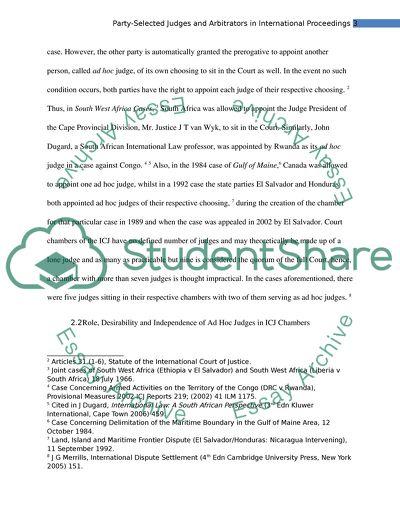Cite this document
(Party-Selected Judges and Arbitrators in International Proceedings Research Paper - 1, n.d.)
Party-Selected Judges and Arbitrators in International Proceedings Research Paper - 1. Retrieved from https://studentshare.org/law/1747269-party-selected-judges-and-arbitrators-in-international-legal-proceedings-their-role-independence-desirability-and-compatibility-with-the-general-principles-of-law-governing-procedure-before-international-tribunals
Party-Selected Judges and Arbitrators in International Proceedings Research Paper - 1. Retrieved from https://studentshare.org/law/1747269-party-selected-judges-and-arbitrators-in-international-legal-proceedings-their-role-independence-desirability-and-compatibility-with-the-general-principles-of-law-governing-procedure-before-international-tribunals
(Party-Selected Judges and Arbitrators in International Proceedings Research Paper - 1)
Party-Selected Judges and Arbitrators in International Proceedings Research Paper - 1. https://studentshare.org/law/1747269-party-selected-judges-and-arbitrators-in-international-legal-proceedings-their-role-independence-desirability-and-compatibility-with-the-general-principles-of-law-governing-procedure-before-international-tribunals.
Party-Selected Judges and Arbitrators in International Proceedings Research Paper - 1. https://studentshare.org/law/1747269-party-selected-judges-and-arbitrators-in-international-legal-proceedings-their-role-independence-desirability-and-compatibility-with-the-general-principles-of-law-governing-procedure-before-international-tribunals.
“Party-Selected Judges and Arbitrators in International Proceedings Research Paper - 1”, n.d. https://studentshare.org/law/1747269-party-selected-judges-and-arbitrators-in-international-legal-proceedings-their-role-independence-desirability-and-compatibility-with-the-general-principles-of-law-governing-procedure-before-international-tribunals.


